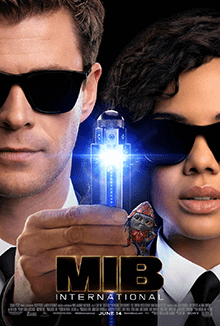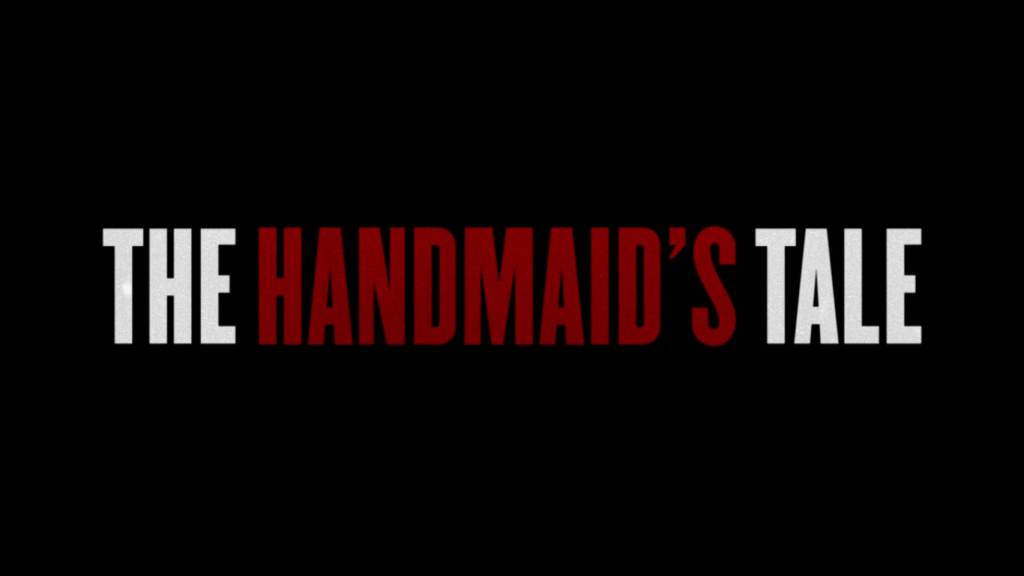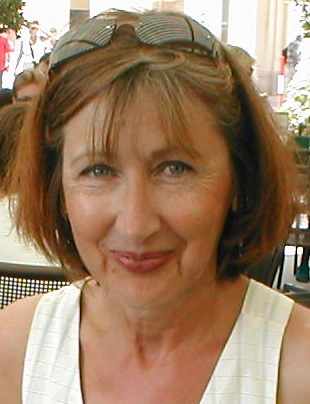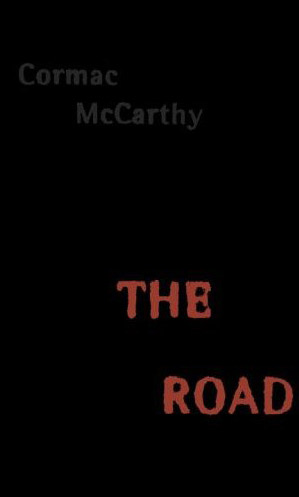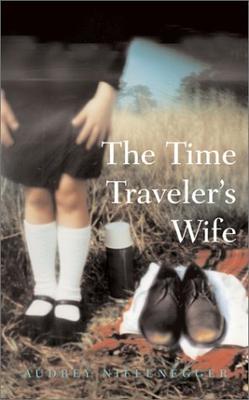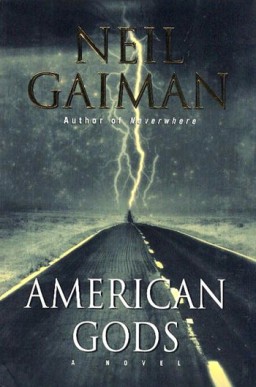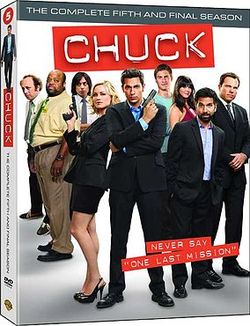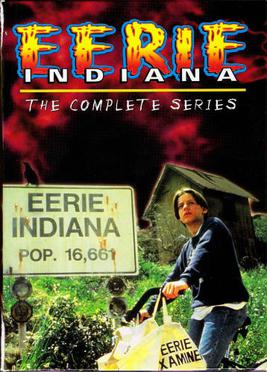The Abbot’s eyes stared up at the ceiling. The reflections of blue-robed angels flew across his gray irises. Not much blood had spattered on his face. His chest was another story. The stains had finally stopped spreading from the rents in his brown wool robe. I noticed a smear near the hem of my long skirt where I stood too close.
Revulsion erupted in my throat and I clamped my hands over my mouth. I could feel the dampness of the blood on my leg. I fought the urge to tear the bottom of the skirt off. I needed to stay calm. If I panicked, all was lost.
On the Abbot’s shaven scalp, the lights of his implanted sanctifications still blinked, attempting to change the thought patterns of a dead brain. One finger slowly twitched. The motor cortex must be getting extra juice. I focused on that. A simple, physical issue in the neurological wiring. I could fix that. I slowed my thinking around that problem.
For some reason, the Abbot’s other hand held a saw. That problem I couldn’t solve right now.
Light from the overturned lamp shone on the wall behind the Abbot’s desk. There Saint Dymphna’s painted neck stretched out to meet her father’s sword in frozen, ecstatic martyrdom. I locked eyes with her, my hot breath seething through my fingers. She could be calm. I could be calm.
A shadow moved across Dymphna’s face. I almost turned and fled, but it was only a tarantula crawling inside the fallen lampshade. It hurried out across the wooden floor, so new the room still smelled of varnish in the dull evening heat.
The spider investigated the bloody chisel. Finally, it decided against crawling over the blade. It ran toward the monk in the shadows by the door. He stood so still, all I could see of him was his multicolored winking sanctifications, forming a halo around his head.
I smiled shakily, my gorge still in my throat. “Come here, please, Beta.”
Uriel Beta stepped forward shyly. He was a young man with a scar down his right cheek. His scalp and face were clean-shaven. What a change he made from when I first met him in prison, with lank dark hair and vomit-encrusted stubble.
Now, his hands were sticky with drying blood. I had found him desperately performing CPR on the Abbot.
“Who are you?” I asked.
Beta’s eyes went blank for a second as a blue light between his eyes flickered quickly. That implant stimulated his anterior cingulate cortex. His pupils contracted again. “…I’m Uriel Beta, a brother in the Order of Saint Dymphna.”
“Who am I?”
Again the momentary blankness. I couldn’t reduce the processing time for his sanctifications any further. That was why he had to be here, in the Order’s tightly sealed compound. He wouldn’t last a minute back on the streets, where his old friends, his victims and the police would all be waiting for him.
“…You’re Doctor Abigail Wainwright.”
“Good. Now lie to me, Beta.”
“…I can’t.”
“Try.”
Beta’s mouth worked, forming the beginnings of words, only for his sanctifications to start blinking more rapidly. Intracranial magnetic stimulation pulsed through his anterior cingulate cortex. Sociopaths have low activity in that region. Finally he let out a shuddering breath.
“…I can’t, Doctor Abigail. …The words won’t stay in my head. …It’s like they’re written in sand, and the wind… it blows the sand away, and what’s left is written in stone, and it’s the truth.”
“Excellent. Now: did you do this?”
Beta stared down at the Abbot, and at his scarlet hands. He knelt down, heedless of the blood on his robe. He looked up at me, tears in his eyes. A yellow light on his forehead faded on and off, stimulating his orbitofrontal cortex, giving him sympathy for the dead man he couldn’t feel on his own.
“…No,” he said at last. “You do believe me, don’t you?”
“Of course I do. But we have to find out who did this. I’m going to have to call the police pretty soon, and if we can’t give them the murderer, they’ll have to investigate. That means asking questions, and you know how the police already feel about this place. They might even try to force you to leave.”
Beta’s lights flickered. “…Yes. I understand. …We’re all very grateful to you, Doctor Abigail.”
I remembered how Beta had been when I met him: a monster seeking only his own immediate gratification. I set my jaw.
I looked over the monitors in the corner of the Abbot’s office. The lone guard was still in the booth at the entrance to the compound, oblivious. There were no guards inside the Order. We didn’t need any: no one wanted to get out. Besides, guards would have brought their own agendas, their own ideas of regulation and punishment, inside this place, and that would ruin the delicate work I performed here.
The rest of the monitors showed empty rooms and halls, but I knew where everyone was. It was nine o’clock: time for compline, the last service of the day. I held out my hand. “Come with me, Beta.” He took my hand and stood. I didn’t mind the blood. What kind of neurosurgeon would I be if I did? I took him over to the sink where the Abbot got water for blessing, and washed our hands.
Beta scrubbed at his fingernails as his tears ran down the drain. “…He was a great man. …You and he together made me whole. …You were like my mother and father.”
I squeezed Beta’s shoulder. “I know.”
We left the Abbot’s office, and I locked the door behind us. In the hallway, the ceiling lights reflected in the dark lacquered floors, as if we were hopping on stepping-stones in a frozen river. The adobe walls slowly released the day’s heat. The air was close, and sweat beaded on my forehead.
From up ahead came the chanting of the gathered monks. I recognized the canticle at once: the “Dies Irae,” “The Day of Wrath.” I mostly knew it from funeral services. An ill-omened thing to have come up in the lectionary for today. I saw Beta’s pupils dilate, and I knew it wasn’t just the dim light. I’d given all the brothers an implant in their anterior insula cortex. It gave them an experience of being one with each other when they worshipped together: a reward for their commitment to communal life. Now the music was taking hold of Beta. I gripped his arm.
“Uriel Beta, I need you to stay with me now. You’re the only one here who can’t lie to me.”
Beta looked at me with a slowly fading smile. He shook his head hard. “…I’ll try.” We continued down the hall. The chanting grew louder. Beta, struggling with the music, fighting its insistent communion with his brothers, started a whispered conversation to try to stay present with me.
“…Why didn’t you make it so we all can’t lie to you?”
I laughed quietly. “I’m good, but I’m not that good. All psychopaths need stimulation of the orbitofrontal and anterior cingulate cortices. That just reverses the particular manifestation of their disability. There are many ways to be a psychopath. You were a compulsive liar; now you compulsively tell the truth.”
“…But do I deserve any credit for that, theologically speaking?”
“That’s not for us to decide. You’re not hurting anyone anymore, and that’s the important thing.”
I remembered the photos of his victims, and shuddered. I was acutely aware of being alone with him, but I knew I was safe. Turning off the brothers’ sex drives had been the easiest operation. A simple matter of cutting off that pathway between the amygdala and the hypothalamus. I had to, or we’d never get anything done.
Beta and I emerged into the back of the candlelit chapel. Darkness filled the circular stained-glass window, giving just hints of deep reds and blues. On the woven altar covering, flowers with lush green leaves bloomed in the desert.
Without the Abbot, the brothers still knew the rites. The slow chant of the song went on and on. The harmonies were rough: I could work no magic with musical talent. But the joy they felt as they sang, or droned, or howled, hummed through the floor. Beta trembled. I put my hand on his shoulder. He smiled beatifically.
Counting Beta and omitting the Abbot, there should have been twenty-two monks in the chapel. It only took a moment to know that one was missing. All I could see was the back of their shaved heads, each blinking with its own constellation. That was enough: I knew each of their implants better than I knew their faces. I had spent hours placing each one. There were Uriel Alpha and Gamma; there were the Raphaels, all six Gabriels, the Michaels…
My breath died inside me. Cold rose up my back despite the heat. I squeezed Beta’s shoulder hard, and he looked at me hazily. “Sariel,” I whispered. “It’s Sariel.”
Beta’s eyes widened. I pulled him back into the shadows. “He must be somewhere where he can’t hear the service, and can hide from the cameras,” I said. “Where?”
Beta thought a moment. “…The library. The special collection. There’s one corner the camera can’t see. We all know about it.”
“Let’s go.” We retreated from the chapel, back into the dark hallways.
Sariel. Our celebrity: Samuel Hutchens, the one serial killer I’d attempted to sanctify so far. Once I controlled his temporal lobe epilepsy, the rest had seemed fairly straightforward. I’d named him for the angel who taught humans about the moon. It matched the cyclical course of his murders.
Beta slowly opened the big oak door that led to the library. It creaked the tiniest bit. I prayed that only we heard it. Inside, green glass lampshades cast a watery light with pools of white on the ceiling. Books encased the walls. The shadows of shelves collected darkness. They gave off the odor of heat and paper.
I took off my shoes. We tiptoed along the shelves to the end of the row where the books about the Old Testament joined those of the New. The door to the special collection stood closed. On the floor lay a copy of the Lives of the Desert Fathers. Very slowly, I slid it out of our way with my foot.
Beta took hold of the door handle and looked back at me. I nodded. He gritted his teeth and threw it open.
Sariel stood in the corner, his nose in a book. He was a short, stocky, middle-aged man. His head was encrusted with sanctifications, like a phosphorescent reef. He looked up at us. His eyes gleamed in the dim light.
“Doctor,” he said softly. “You’re here late.” His accent was aristocratic Southern: Savannah, I knew, from his records. He sat down at the reading table.
“Why aren’t you at compline, Sariel?” I asked.
“I’m finding greater enlightenment here.” He closed the volume and turned it so I could see the cover. Neurocybernetic Behavior Modification. My first book.
“What’s that doing here?” I asked.
“The Abbot thought it was important that we know what we are.” Sariel ran his finger along the crevices of the brain on my book’s cover.
I sat down carefully across from him. “And what are you?”
“Spiritual beings, freed from the thorns of the flesh. Human as human was meant to be, human as in the Garden of Eden, free to praise God eternally until senescence. At which point we will resume the practice in heaven.”
I smiled. “That’s what you’re meant to be. You’re supposed to be better than the rest of us.”
“That’s what the Abbot thought, at least.” He looked at me from under heavy lids.
“Sariel… Have you seen the Abbot today?”
“No,” he whispered, his finger still moving over the convoluted lines. “Not personally, I mean. I saw him at worship this afternoon. And at noon. And this morning.”
“Then why aren’t you there now?”
“Because I’m tired!” he shouted. He picked up the book and slammed it back down. “I’m tired of feeling one with the universe whenever we sing a minor fifth. We’re slaves to your damned brain-machines, and I have had enough.” He reached down into his lap and brought up a tool. My whole body tensed. It was a vise grip. He set it gently on the table. “Eating and f-f-f… mating.” He spat out the word with the force of the interdicted vulgarity. “That’s what it is to be human. So how human do you think I feel, Doctor?”
“Where did you get that?” I asked, stalling for time.
“The workshop. You wanted us to be productive, after all. Idle hands, and so on. You were so sure of your work, that we wouldn’t use the tools to hurt each other. And you were right, of course. I couldn’t hurt another person now, even if I could want to.”
“Then what are you going to do with it?” My voice felt strangled in my throat.
Sariel’s fingers walked over his sanctifications like the legs of a pale spider. “I believe I know now what each one of these things does. This one, for instance—” He tapped a tiny box with a blue light on the left side of his head. “—This one regulates the communication between my amygdala and hypothalamus, so I can’t feel sexual excitation. This has been a particularly painful loss for me.”
He picked up the vise grip and closed it on that box. I stood up. “Jesus, don’t do that, Hutchens!”
He stood too. “Don’t come closer, either of you. I know what will happen. It’s like a fishhook: it does more damage coming out than going in. But it doesn’t matter, since I’m already dead to everything important in life. I’ll give you this, Doctor: you made the death penalty look good.”
He ripped the sanctification out of his head. Most of the implant tore off inside his skull, but the wire came out crusted with pinkish-gray neocortical flesh. Blood pulsed down his scalp. His right arm instantly flopped down at his side. He had torn straight through his motor cortex. He looked down at the useless limb.
Sariel grinned. “If your hand offend thee, cut it off.” His voice was thick.
“Beta, stop him!” I shouted. But when I looked back at him, Beta was shaking. His eyes rolled back into his head. He collapsed against the table and flopped onto the floor. His sanctifications scraped against the hardwood. I turned him on his side. His breathing was ragged but clear.
“And if your eye offend thee, pluck it out,” Sariel said. He gripped another sanctification and ripped it out, destroying Broca’s area, the center of grammar. “Interesting. Is. Feeling. You. Good. To me. Look. Feel… normal, almost.” He giggled, and ripped out another and another. Twitches writhed under his skin, contorting his face. His good hand trembled, so he had trouble getting at a sanctification at the back of his head. When he pulled it out, his right eye blinked furiously.
He was now blind on that side. I slipped around the table that way.
“Where… Go?” Sariel choked. He searched to his left, but like many people with damage to their left occipital lobe, he ignored his right completely. He brought his shaking hand to the center of his forehead, trying to get a grip on the winking red light there.
I grabbed the vise. It came easily from his loose fingers. I threw it away. He howled. Blood streamed down his face. His arms flailed out blindly. I grabbed my book off the table, a heavy tome full of illustrations. I swung it at the back of Sariel’s skull. I had to hit him three times, ruining more sanctifications as well as the book’s cover, before he fell down and lay shivering.
Beta moaned and tried to sit up. I knelt down and supported him. He looked around blearily under the table and saw Sariel’s bleeding head. Beta smiled weakly, then threw up. I moved to block his view of Sariel, and slowly he recovered. “…Not much good, was I?”
“It’s not your fault,” I said. “I turned up the activity in your mirror neurons to give you more empathy. Empathizing with that was just too much.”
“…I think I’m okay now.” I helped him stand up.
“Can you stay here and watch him?” I asked. “Make sure he doesn’t hurt himself any more?”
“…Yes. Are you going to call the police?”
“No.” I patted Beta’s arm. “It’ll be all right. I want to see if I can can save Sariel.” I sighed. There probably wasn’t much left of Sariel to save. I had worked so hard on him. “I’ll be right back.”
I left the library, retrieving my shoes as I did so, and headed for the Abbot’s office. I had to make sure it was undisturbed for the police. Soft chanting still drifted down the halls. The unity of the sound made it all worthwhile.
I passed by a small shrine for Saint Dymphna in the hallway. A single votive candle flickered under her portrait: a young, pretty, red-haired girl. The patron saint of the mentally ill. I wondered who had lit the candle. I thought of the men in the chapel, brains malformed at birth, who had never had a chance to choose the good at all. I freed them from that. I made it possible for God to save them. I opened the doors of Heaven.
Saint Dymphna’s ghost of a smile was not really reassuring. Neither was the crimson line across her throat.
I stalked down the hall. The brain is a physical system, I told myself, running over the old arguments in preparation for dealing with the police. A human brain is run by chemicals and electricity. You can measure it, alter it, even hold it in your hand. For God to change the flow of electricity in these men’s brains would have required a miracle, a bona-fide miracle, no less than splitting the Red Sea. And God doesn’t work that way anymore. Just read the news.
I reached the Abbot’s door and unlocked it. All I knew was, I saw sickness. I’m a doctor. So I healed it. What else was I supposed to do?
I walked around the desk. Two pools of sticky blood marked where the Abbot’s body and the knife had been.
I looked up. Uriel Beta stood in the doorway. Behind him, the other monks filled the hall. They sang quietly. I had mistaken volume for distance.
Beta’s left hand held something the size of a large rock. When he stepped forward I could see what it was.
“Uriel Beta, what are you doing with that drill?”
Beta looked down at his empty right hand. “…I’m not holding any drill, Doctor.”
“You can’t lie to me, Beta. I know you can’t.”
“…I’m not lying, Doctor. You did your work very well. See?” He waved his right hand languidly at me. “Nothing.”
“What about your other hand?”
“This?” He looked down at his left hand. It stayed very still. The knuckles were white, except the one on the trigger. “…This isn’t my hand. This is God’s hand. I don’t have any control over it.”
“Jesus. Beta, you have alien-hand syndrome. I should have known it was a possibility, it’s associated with disorders of the anterior cingulate. I stimulated that region to help your empathy, but I must have overloaded something somehow. I can fix it, Beta, I swear I can, but you have to give me the drill.”
The tarantula scurried in front of him. He knelt down.
“God doesn’t want you to take this,” he said softly. He triggered the drill and stabbed it through the spider’s body and into the floor. He never took his eyes off me as he did it. “But don’t worry. He doesn’t want to kill you either. Not like the Abbot. The Abbot wanted to saw off God’s arm.” He pulled the drill out of the floor and stood. “God only wants you to know the happiness we feel.” I realized he wasn’t pausing before he spoke. He believed what he said absolutely.
I saw blinking lights in another monk’s hand. It took me a moment to realize they were Sariel’s bloody sanctifications.
Beta’s left hand tested the drill. It whirred loudly. He stepped forward. There was nowhere for me to go. For the first time I really saw the window bars from this side.
“He’s going to sanctify you, Doctor,” Uriel Beta said as the other monks surrounded me. They grabbed me and pulled me to the floor, singing the whole time.
“You’re going to see what we see. What you gave us.” Beta knelt down over me. “Thank you, Doctor. We all thank you so much.”
I heard a sound. I couldn’t tell whether it was me screaming, or the drill. I looked up at the shaved heads all around. A cloud of blinking lights surrounded me, pulsing in complex rhythms. I knew each blink and flicker.
They were all working perfectly.
© 2019 by Stewart Moore
Author’s Note: “Lies of the Desert Fathers” was born out of research in the hard doctrine of original sin, that no human can achieve godliness unaided. But who knows what helps towards saintliness might be available after 50 more years of technology?
 Stewart Moore began his peripatetic career by graduating college with a degree in theater, following which he directed a production of his play Henry and Beckyin New York City. Later, he earned a Ph.D. in Hebrew Bible at Yale. His researches there led to the publication of his first book, Jewish Ethnic Identity and Relations in Hellenistic Egypt (Brill, 2014). Turning from nonfiction to short fiction, he has been published in anthologies edited by Ellen Datlow (The Beastly Bride, 2010) and Paula Guran (Halloween, 2011). He has also been published in the magazine Mysterion (2018). He lives in New Jersey with his wife, daughter and an odd number of cats.
Stewart Moore began his peripatetic career by graduating college with a degree in theater, following which he directed a production of his play Henry and Beckyin New York City. Later, he earned a Ph.D. in Hebrew Bible at Yale. His researches there led to the publication of his first book, Jewish Ethnic Identity and Relations in Hellenistic Egypt (Brill, 2014). Turning from nonfiction to short fiction, he has been published in anthologies edited by Ellen Datlow (The Beastly Bride, 2010) and Paula Guran (Halloween, 2011). He has also been published in the magazine Mysterion (2018). He lives in New Jersey with his wife, daughter and an odd number of cats.
If you enjoyed the story you might also want to visit our Support Page, or read the other story offerings.
